HIERARCHY OF THE WILDERNESS
It was June now and Orion was no longer to be seen; Scorpio dominated the long cold nights. When the monthly influx of cold air arrived we would sit during the day wrapped up in blankets to keep ourselves warm, and the east wind blew so persistently that our battery was always fully charged. In fact we could even afford to have a light in our living-room and Hermann made us a lampshade. We could now read or write after dark. Two evenings a week we enjoyed excellent symphony concerts from Cape Town, and when accompanied by succulent antelope meat life was quite agreeable.
Then one morning the music was interrupted for an announcement that German troops had invaded Russia. »He seems to have forgotten Napoleon,« said Hermann slowly. After that we listened religiously to the news broadcasts twice a day. We followed the swift advance of the German armies, the development of great battles, and the whole fascinating operation of that vast war machine as it rolled deeper and deeper into Russia. We found it difficult not to let ourselves be swept away in the general frenzy, although we knew very well the mass misery and suffering behind the news.
In the meantime our own particular trouble was lack of water. The levels of our water-hole sank slowly but inexorably, and the antelope, which usually put a bit of fat on in winter, remained thin. Only the zebra still looked fit and well and as though they lacked nothing. We tried to shoot one but the bullet glanced off the hard slanting horselike skull. The animal fell and seemed dazed for a moment, then scrambled to its feet and clattered off in a cloud of dust. The next time we picked out a young one, and we got him, but there was no fat on the carcass. The wild cattle looked so pitiful that we didn’t bother about them at all.
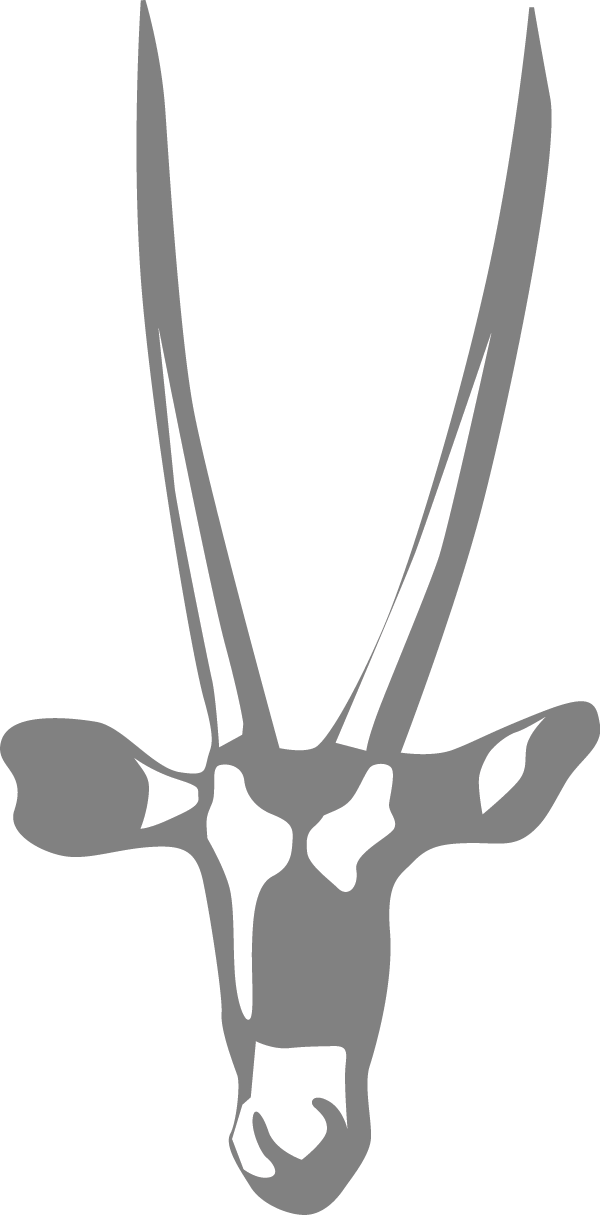
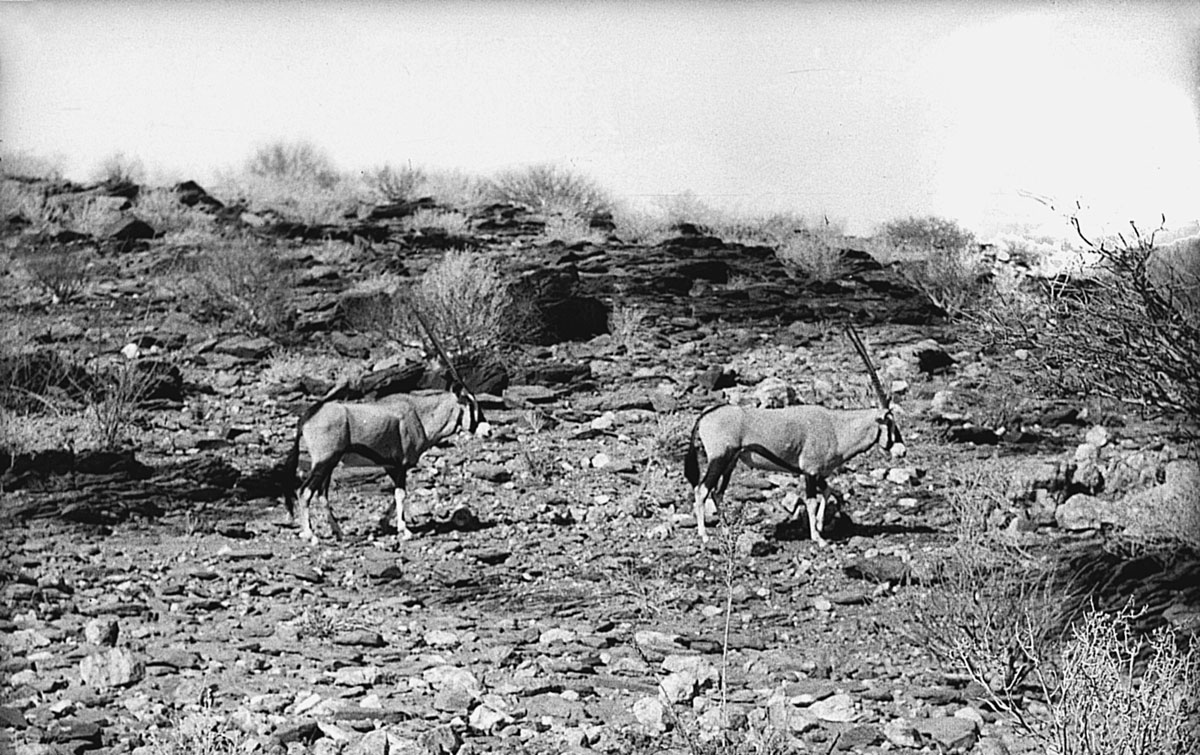
We had our hunting expeditions well organised now. From the hill behind our house we could see over the rocks to our ambush. If one of us was sitting up there and had shot a gemsbok he would spread out a white cloth, which was clearly visible from the house, and the other would then go down to help in the job of skinning, cutting up and transporting the meat back to the house.
One morning before sunrise I was sitting up as usual when I heard the crunching of gravel followed by a loud smacking of wet chops. A horribly ugly hyena was at the pool. After drinking it licked its forepaws and then trotted off along the game track which led down the river bed. I was following it with my eyes when I noticed a leopard coming along the same track but from the other direction. The two animals came closer and neither gave any indication that it had spotted the other. The leopard’s fur was ruffled and it slunk forward like a big cat towards the hyena, whose high shoulders and great head with its enormous jaws made it the taller. The two animals were quite close to each other but still neither of them made any attempt to give way.
When they were not more than five paces apart they both stopped and looked at each other for the first time, standing motionless for several seconds, apparently weighing each other up. Then the leopard gave a low growl, and at that the hyena turned sideways, backed off the game path and sat down on its haunches like a dog. The leopard then stalked past silently like a great lady after a short and triumphant exchange with a rival, going not towards the water, but up the northern side of the slope. The hyena sat there and watched its rival depart, and when the leopard was about two hundred metres away the hyena gave vent to its wounded feelings in a long drawn-out cackle. The leopard didn’t even bother to look round. The incident was grotesque, a caricature of human behaviour, and it struck me that the »all too human« behaviour of men was in reality »all too animal«.
Coming back with a springbok one day Hermann left his field-glasses behind in our ambush. There seemed no great harm in that; no one but ourselves was likely to go there. It was three days before he went to fetch them. He was gone a long time and when he returned he laid the component parts on the table silently.
»When I got down to the river bed,« Hermann said, »I saw the solitary tracks of a big baboon, and I felt a certain misgiving. How right I was! He had poked around in our ambush and my glasses were gone. I began to search and about two hundred yards down the bed I found a lens on a rock slab, and as I went further I discovered the other pieces one by one. Everything you could unscrew was unscrewed. The fellow must have been at it for hours. He just chewed off the leather covering. Unfortunately there’s one eye-piece missing. Maybe that baboon’s wearing it as a monocle.«
Hermann reassembled his field-glasses, but owing to the missing eye-piece he could use it only as a monocular now, which was a great nuisance, because the vastness of the area made it necessary to use our glasses constantly. However, about two weeks later he was lucky enough to come across the missing eye piece.
»I was going down to the water, and nothing was further from my mind, particularly as all the other bits and pieces had been much lower down. But once I had got beyond the ana tree I had an odd sort of feeling that I ought to go over to the other side of the river- bed. I hadn’t quite got there when I saw something glint in the sand. I bent down to see what it was – and it was the missing eye-piece. It’s a bit scratched, because the wind’s had ten days to scour it with sand, but it’s much better than nothing all the same.«
What had drawn Hermann over to that spot where the missing eye-piece lay? Was there some secret telepathic force at work? We remembered the frogs and we thought of the almost incredible feats of messenger pigeons. How did they find their way back to their lofts, often hundreds of kilometres away? It isn’t satisfactorily explained by assuming the possession of some mysterious sense of direction, because what’s the good of knowing where north is when you don’t know where you are? And how does a seal find its way through changing wind and tides to an isolated island in the sea?
All these and similar questions to which we could find no satisfactory answers confirmed our feeling that no purely mechanistic interpretation, and in general no interpretation which assumed that a living being was only a complicated physio-chemical machine, was adequate – and that applied not only to human beings, but to life as a whole. So far so good, but where was the proof that there was a power superior to chemical and physical phenomena? We tackled the problem first from one angle and then from the other, but we made no progress. It was quite true that many of the almost incredible performances of animals and plants could be adequately explained by highly developed and perfected chemical and physical reactions operating entirely within material limits, but the fact remained that day after day our life on the edge of the desert demonstrated the fundamental difference between living and non living matter.
One evening Hermann raised the subject once more: »Why does evolution only suggest that the problem of life can’t be satisfactorily solved on a purely materialistic basis? Why doesn’t it provide us with some proof? Perhaps there is no absolute proof,« he continued, »because the accident of arbitrary mutation is embodied in evolution. Where chance is a condition of the experiment you can’t demand a definite result. Chance is innate in the generational change. To avoid chance and thus the calculus of probability there would have to be evolution without either birth or death.«
Suddenly the solution dawned on me.
»You said that if there were evolution without generational changes,« I began. »But there is such a development where the individual man or animal is concerned. Every human being and every animal develops during the course of its life.«
»True enough,« admitted Hermann, »but can you prove that that evolution isn’t purely mechanically determined by the interplay of heredity and environment?«
»Yes, I think so. Take our lizards, for example. In just three days they learnt that a whistle meant food. The utmost their predecessors can have learned is that a buzzing noise indicated the approach of a fly. But the introduction of a connection between a whistle and the feeding reaction of the lizard required a readjustment and an extension of inherited characteristics. And such a readjustment and extension is what we call development, and in this case it was certainly no question of a mutation.
And such readjustments happen constantly. In the Stone Age there was a man who was the first ever to trace the outline of an antelope in the sand. In doing so he was not only using one part of his body in a way it had never been used before, but he was deliberately creating something entirely new, to wit, a picture. Before that no such thing as a picture had ever existed – not even as an idea. Thus life was not merely able to adapt itself to its surroundings, but it could create new things and give old things a new significance. And for this neither a generational change with accompanying mutations nor any natural selection in the struggle to survive was required.
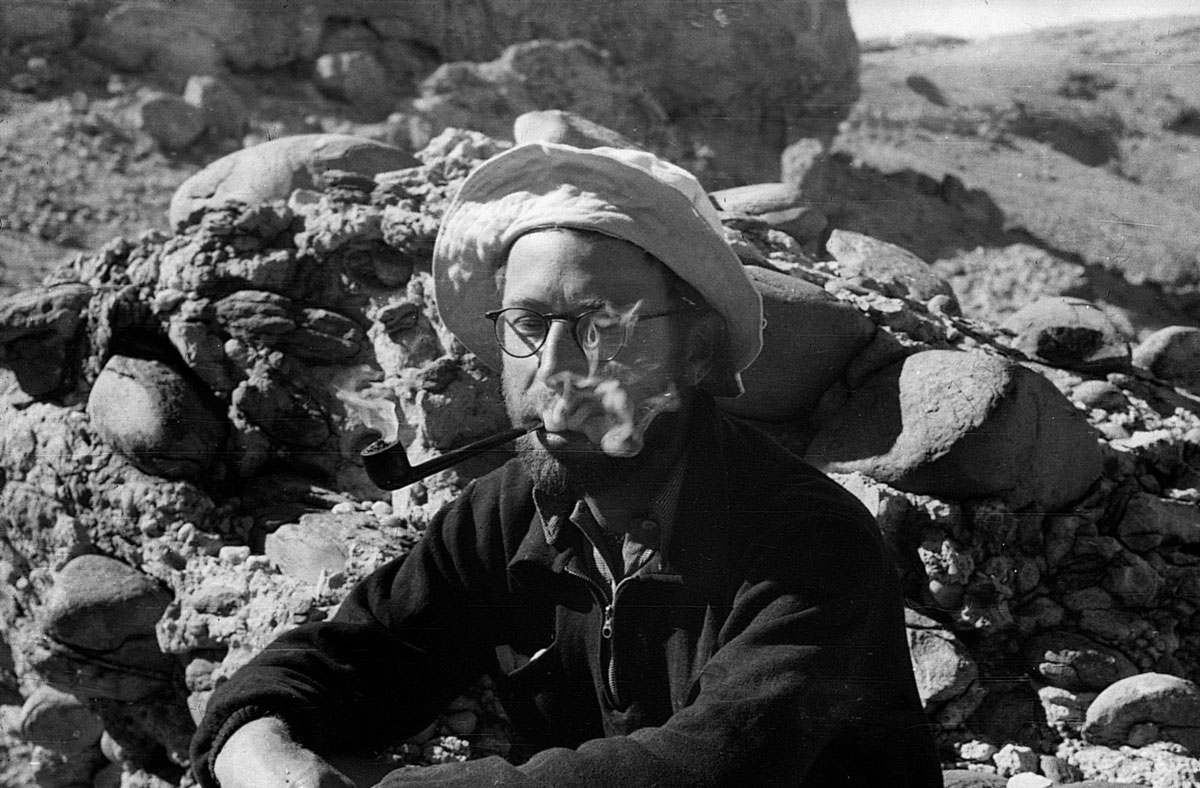
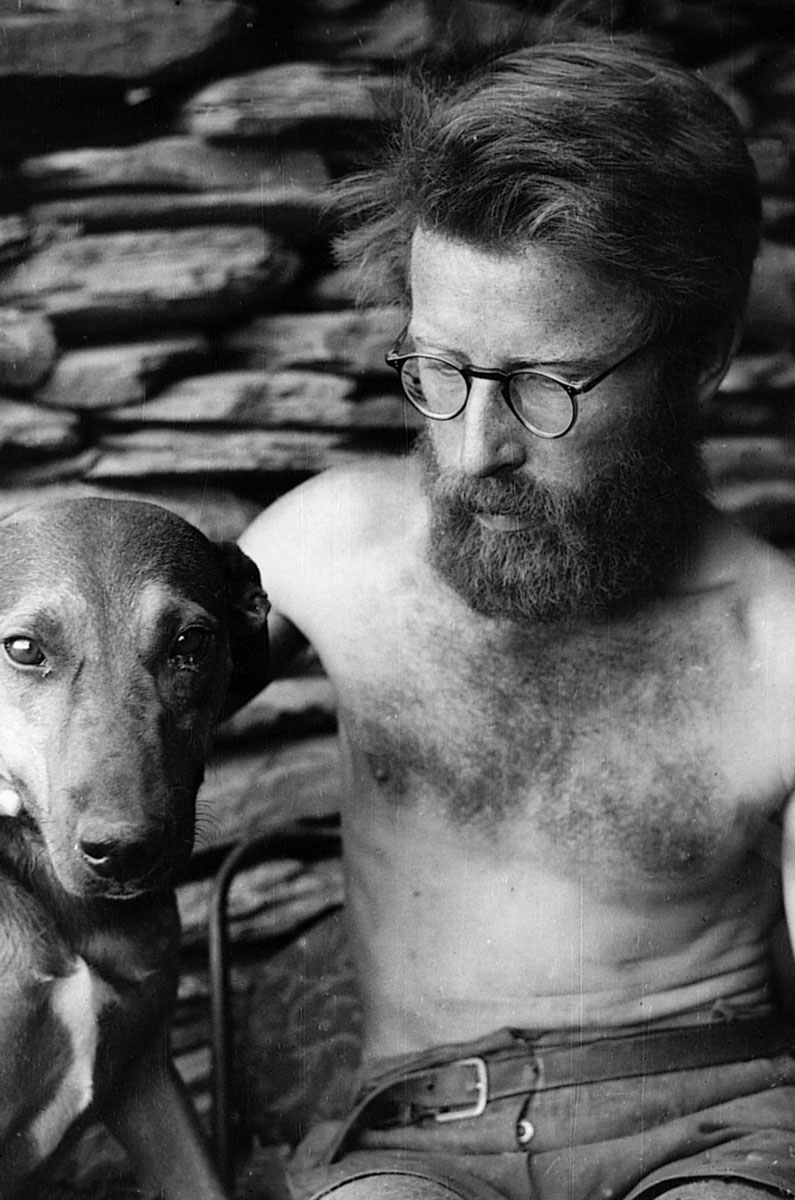
Now that certainly fits in with the conclusions we have already drawn regarding human evolution. We decided that it was precisely the protection of children from the struggle to survive which favoured learning and new developments. But where any form of animal life is subjected too intensely to the struggle to survive we find narrow physical adaptations and rigid instinctive reactions which make further development impossible. Darwin was quite right when he said that the struggle for existence with the consequent survival of the fittest was responsible for adaptation in the animal kingdom. But as most adaptations hamper the capacity for further development their influence on life in general is negative, which is, after all, precisely what you would expect from a force operating primarily through destruction. Everything which is narrowly adapted to certain conditions are constantly changing. But where does that lead us? Above all it explodes all those wretched arguments which try to justify war and brutality on the ground that a ruthless struggle for survival furthers development. It furthers certain developments, but it drives them into a blind alley and leads ultimately to extinction.
In other words, the feeling which revolted against such an idea was right, which isn’t so very surprising because feeling is a judgement based on life as a whole whereas consciousness and understanding are newly acquired and not as yet highly developed faculties.«
The next morning I was up early and from a hill top I watched the sun rise over the mountains. Turning my eyes from the bright horizon I spotted a group of gemsbok on a bare patch of ground below me. They were certainly wonderfully vital animals, and the early morning light clearly modelled the rippling muscles under their shining skin and their long horns glistened like burnished swords.
When I got back Hermann had cooked a sort of sweet omelette with currants, but without eggs, for breakfast, and hot coffee sent little clouds of exhilirating aroma into the cool air. From the radio came the powerful chords of a Beethoven symphony, but you might have thought it emanated from the wild and broken landscape all around.
Later on we reverted to the subject which had occupied us the previous evening. We had seen that individual animals could develop during their lives without the benefit of mutation or natural selection. What was the basis of this marvellous capacity? What was learning? What was experience? A simple example occurred to me: I am thirsty and therefore I go to drink; but then I discover that the water is salty. This is an experience not easily forgotten, and with it goes naturally a picture of a water-hole with saltencrusted edges. If that experience is repeated a few times I soon draw the conclusion that a salt-encrusted edge means that the water in the pool is salty, so the next time I see it I pass the pool even if I am thirsty. In other words, I have learned from experience. Some kind of memory seems to be one of the basic attributes of life – even unicellular beings possess a certain capacity to learn from experience. How is a conclusion drawn?
Is it true that every conclusion is based on some requirement, thirst for example? It would seem so, since it can change as the requirement changes. Water is something good when I am thirsty and can drink it, but something bad when I fall into it and am in danger of drowning. Doesn’t this classification of experiences into »good« or »bad« determine the conclusion we draw? Thus learning is something more than a process of association, that is to say the interlinking of successive happenings in our memory; it is closely connected with relative values and our judgement of values.
This seemed to be an important realisation which raised learning above all purely physical phenomena, for good and bad are not physical qualities even when they apply to physical things. And we could now link up this conclusion with some earlier ideas of ours when we decided that every feeling even the simplest such as the perception of pain, involved a passing of judgement. Doesn’t every feeling judge an experience in relation to a need? For example, the disappointment of a thirsty man when he finds that the water he wants to drink is salty. Or the feeling of relief a man experiences in the cool shade of a hillside out of the burning sun. Could one in fact go further and say that need was first made conscious by feeling?
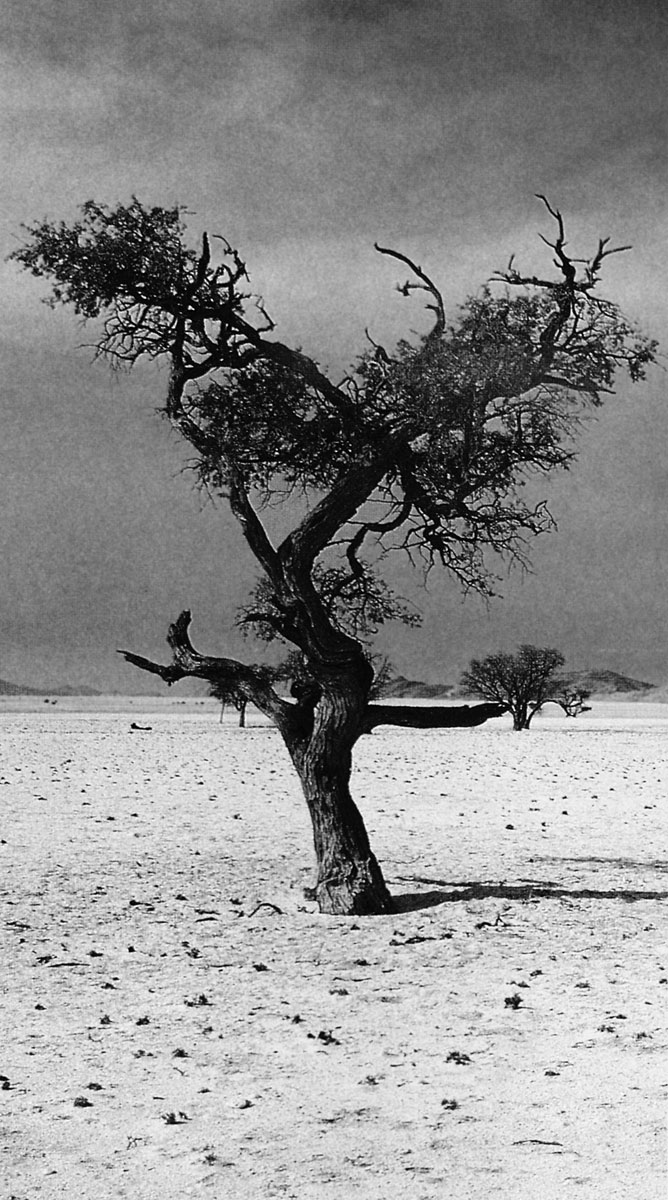
More and more ideas developed. Was the capacity to pass judgement a spiritual attribute? If it were then a spiritual force was at work in all feelings, even the simplest. But was the expression »force« an appropriate one in this connection? Probably it was, because a feeling sent electrical impulses through the nervous system to set muscles into movement; in other words, it produced effects which could be produced only by forces in the strictly physical sense of the word. But the decisive thing was nevertheless that these forces were guided by judgements based on feeling. But feeling considered as a judgement does not necessarily run parallel with physical phenomena; it can run counter to them; it can approve or disapprove – in other words, it is superior to physical phenomena.
I had often asked myself whether life in all its multifarious forms was merely a strange accident in world evolution, and now I felt that I had obtained proof that it was nothing of the sort: life was raised above the phenomena of the inanimate world precisely by feeling. Here then was something truly remarkable: a force which determined values, something non- material, and guided physical phenomena through them. It was thus a force of a higher order, and by establishing values it broke through the rigid framework of purely physical phenomena.
Each value would have to be measured in terms of the force which passed judgement and created all values. Forms of life which were seen to allow this force the greatest latitude and afford it the greatest possibilities of development would necessarily be the most vital and the most valuable. And conversely, those forms of life which were seen to be bogged down in mechanistic adaptations would be the inferior, the less valuable. It was immediately obvious of course that those forms most successful in the struggle for survival need not necessarily be the most valuable. There were many examples in the history of life to show that precisely the most perfectly adapted, the physically biggest and strongest, the most numerous creatures, the lords of whole periods of life, died out in the end with monotonous regularity leaving the torch of life to be carried forward by smaller, more modest and often previously almost unnoticed forms of life, until they too fell into the trap of all too perfect adaptation. The museum showcases were full of the fossilised remains of once powerful and highly adapted forms of life which had nevertheless died out.
These considerations gave rise to one burning question which was now given point by the radio reports of the fierce fighting in Russia: was the human being the next candidate for the museum show-case? But our happy recognition that the development of life was being guided not by sheer chance, but by a non- material force, inspired us with hope that in the end humanity would be able to escape from the compulsion of suicidal wars. Could there have seemed a more forlorn but gallant hope in the year 1941 ?
Our bare feet had traced two parallel paths in the red sand, and we were exhausted; our stomachs were rumbling and our midday meal was only a memory. We ate a large piece of gemsbok meat, caught flies for our lizards and browsed in the already ten-times-read books of our small library.
